T&R Resources
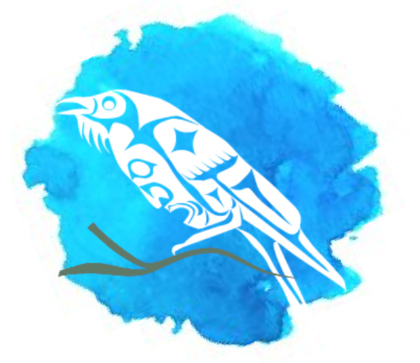
RAVEN is a non-profit charitable organization that provides financial resources to assist Aboriginal Nations within Canada in lawfully forcing industrial development to be reconciled with their traditional ways of life, and in a manner that addresses global warming or other ecological sustainability challenges.
RAVEN’s vision is a country that embraces the ancestral laws of Indigenous Peoples and their equitable access to the justice system within a thriving natural habitat. Learn more about RAVEN.
![]()
Videos
– Documentaries
– APTN Aboriginal Peoples Television Network
– and more.
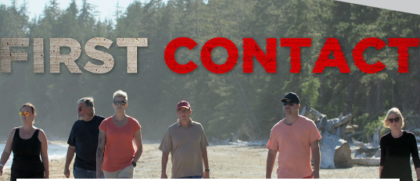
Watch the new TV Show: First Contact, where “6 average Canadians take a 28 day journey into Indigenous Canada”.
Most Canadians have never taken the time to get to know Indigenous People or visit their communities. First Contact takes six average Canadians, all with strong opinions about Indigenous People, on a unique 28-day journey into Indigenous Canada. Leaving their everyday lives behind the six will travel deep into Winnipeg, Nunavut, Alberta, Northern Ontario, and the coast of BC to visit Indigenous communities.
Narrated by host and social justice activist George Stroumboulopoulos, First Contact is a journey that will turn the six participants’ lives upside down. Challenging their perceptions and confronting their opinions about a world they never imagined they would see. It is an experience that will change their lives, forever.
All three episodes from season one are available to Canadian viewers for free online streaming. Watch now.
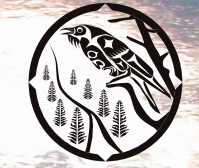
Recognizing Rights – Aboriginal Justice in Canada by Raven Trust
While disrupted and at times outlawed by the Canadian government, Indigenous legal traditions are currently experiencing a revitalization and resurgence. Many Indigenous nations are leading the way in revitalizing and applying Indigenous laws to protect the health of people and the land in their traditional territories.
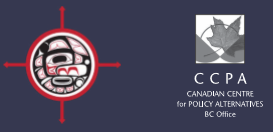
True, Lasting Reconciliation Implementing the United Nations Declaration on the Rights of Indigenous Peoples in British Columbia law, policy and practices
published by Union of British Columbia Indian Chiefs
and Canadian Centre for Policy Alternatives
THE IMPLEMENTATION OF THE UNITED NATIONS DECLARATION ON THE RIGHTS OF INDIGENOUS PEOPLES (UN Declaration) is a central political and public policy issue around the world, and more dialogue needs to take place on how the UN Declaration can and should be put into action. This report helps to fill the gap by advancing discussion on the implementation of the UN Declaration in British Columbia. It challenges politicians, officials, advisors, experts and the public to explore a range of avenues about how the UN Declaration can be given meaning on the ground in constructive, impactful and practical ways. Inspiring this report is a strong belief that there exists significant unfinished business to address the legacy of colonization of Indigenous peoples in Canada, and that addressing this legacy requires significant changes to legal and policy frameworks.
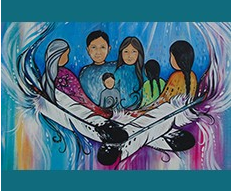
Delegated Aboriginal Agencies: How resourcing affects service delivery
published by Representative for Children and Youth
Underfunding of Delegated Aboriginal Agencies (DAAs) may mean Indigenous children are being removed from their homes and placed in care simply because the funds are not there to provide support services to their families, finds a report released today by B.C.’s Representative for Children and Youth.
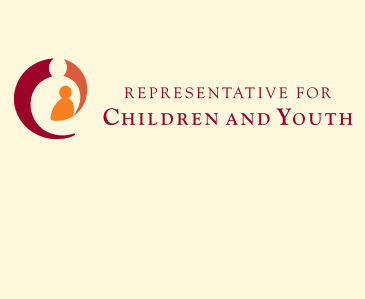
Lost in the Shadows: How a Lack of Help Meant a Loss of Hope for One First Nations Girl
published by Representative for Children and Youth
This report by British Columbia’s Representative for Children and Youth tells the tragic story of a 14-year-old First Nations girl who hung herself in the yard of her grandparents’ home on a rural B.C. First Nations reserve. There are 203 First Nations in B.C. and most never have a suicide in a year or over many years, especially by a young person. But some do and, in addition to suicide, they may be grappling with serious issues for children and youth who do not feel safe or lack access to the basic services afforded to other children and youth in the province. Serious issues for the safety and well-being of children occur in every community where parents and families may face struggles with mental illness, addictions and violence.
– First Nations authors
– First Nations law
– History before and after colonization
– and more.
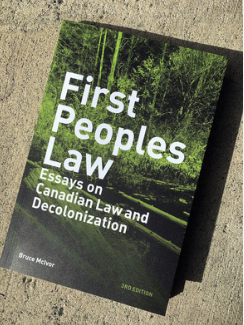
First Peoples Law:
Essays on Canadian Law and Decolonization
by Bruce McIvor (2018)
The new edition of my collection of essays on Canadian law and decolonization is available as a free download. So far we’ve had close to 5000 downloads from around the world. Paperback copies are also available to order. Click here to check it out.
Bruce McIvor, lawyer and historian, is a partner with First Peoples Law LLP. Read about Bruce
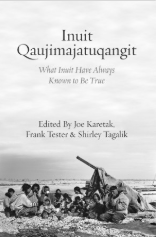
Inuit Qaujimajatuqangit
What Inuit Have Always Known to Be True
Edited by Joe Karetak, Frank Tester and Shirley Tagalik September 2017
Inuit Qaujimajatuqangit — meaning all the extensive knowledge and experience passed from generation to generation — is a collection of contributions by well- known and respected Inuit Elders. The book functions as a way of preserving important knowledge and tradition, contextualizing that knowledge within Canada’s colonial legacy and providing an Inuit perspective on how we relate to each other, to other living beings and the environment.
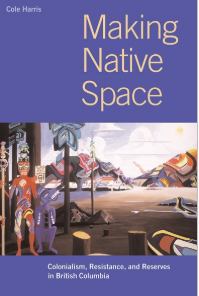
Making Native Space
Colonialism, Resistance, and Reserves in British Columbia
By Cole Harris
UBC Press
Making Native Space clarifies and informs the current debate on the Native land question. It presents the most comprehensive account available of perhaps the most critical mapping of space ever undertaken in BC – the drawing of the lines that separated the tiny plots of land reserved for Native people from the rest.
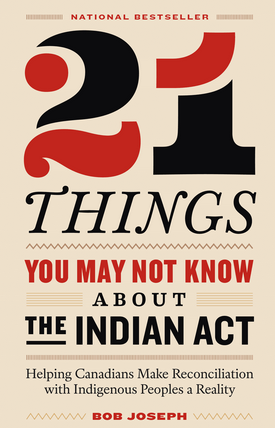
21 Things you may not know about The Indian Act
Helping Canadians make reconciliation with indigenous peoples a reality by Bob Joseph (2018)
21 Things You May Not Know About the Indian Act is the essential guide to understanding the legal document and its repercussion on generations of Indigenous Peoples, written by a leading cultural sensitivity trainer.Since its creation in 1876, the Indian Act has shaped, controlled, and constrained the lives and opportunities of Indigenous Peoples, and is at the root of many enduring stereotypes.
CBC review of 21 Things you may not know about The Indian Act
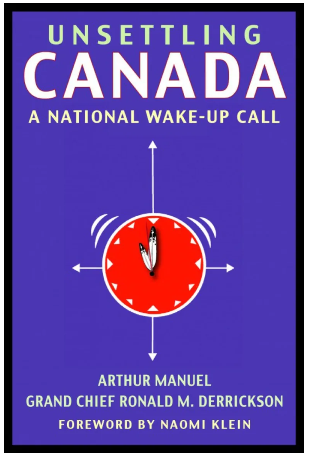
Unsettling Canada: A National Wake-up Call
by Arthur Manuel and Grand Chief Ronald Derrickson, Foreward by Naomi Klein (2015)
Unsettling Canada, a Canadian bestseller, is built on a unique collaboration between two First Nations leaders, Arthur Manuel and Grand Chief Ron Derrickson.
Both men have served as chiefs of their bands in the B.C. interior and both have gone on to establish important national and international reputations. But the differences between them are in many ways even more interesting. Arthur Manuel is one of the most forceful advocates for Aboriginal title and rights in Canada and comes from the activist wing of the movement. Grand Chief Ron Derrickson is one of the most successful Indigenous businessmen in the country.

The Reconciliation Manifesto: Recovering the Land, Rebuilding the Economy
by Arthur Manuel and Grand Chief Ronald Derrickson, Preface by Naomi Klein (2017)
In this book Arthur Manuel and Grand Chief Ronald Derrickson challenge virtually everything that non-Indigenous Canadians believe about their relationship with Indigenous Peoples and the steps that are needed to place this relationship on a healthy and honourable footing. Readers will recognize their profound understanding of the country, of its past, present, and potential future.
Expressed with quiet but firm resolve, humour, and piercing intellect The Reconciliation Manifesto will appeal to both Indigenous and non-Indigenous people who are open and willing to look at the real problems and find real solutions.
CBC review of The Reconciliation Manifesto: Recovering the Land, Rebuilding the Economy
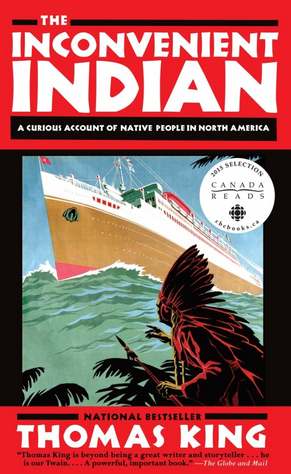
The Inconvenient Indian
A Curious Account of Native People in North America, written by Thomas King
Rich with dark and light, pain and magic, The Inconvenient Indian distills the insights gleaned from Thomas King’s critical and personal meditation on what it means to be “Indian” in North America, weaving the curiously circular tale of the relationship between non-Natives and Natives in the centuries since the two first encountered each other.
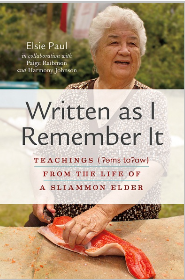
Written as I Remember It
Teachings (Ɂəms tɑɁɑw) from the Life of a Sliammon
By Elsie Paul, with Paige Raibmon and Harmony Johnson
This rare glimpse into the life of a Coast Salish woman and the history of the Sliammon people stands as a fruitful model for collaborative research and storytelling, a model that has the power to transform relations between settlers and indigenous peoples in Canada.
This book will appeal to anyone interested in BC First Nations, BC history, Aboriginal studies, women’s biography and autobiography, Salish languages, and collaborative and oral-history research methodologies.
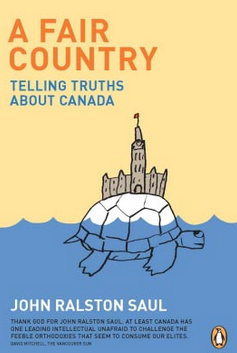
A Fair Country, Telling Truths about Canada
by John Ralston Saul
In this startlingly original vision of Canada, thinker John Ralston Saul unveils 3 founding myths. Saul argues that the famous “peace, order, and good government” that supposedly defines Canada is a distortion of the country’s true nature. Every single document before the BNA Act, he points out, used the phrase “peace, welfare, and good government,” demonstrating that the well-being of its citizenry was paramount. He also argues that Canada is a Métis nation, heavily influenced and shaped by aboriginal ideas: egalitarianism, a proper balance between individual and group, and a penchant for negotiation over violence are all aboriginal values that Canada absorbed. Another obstacle to progress, Saul argues, is that Canada has an increasingly ineffective elite, a colonial non-intellectual business elite that doesn’t believe in Canada. It is critical that we recognize these aspects of the country in order to rethink its future.
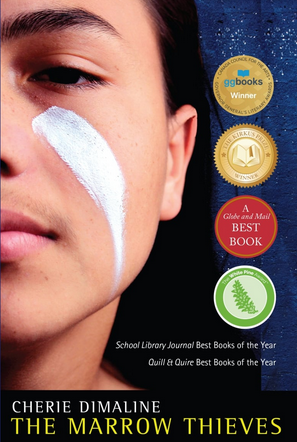
The Marrow Thieves
by Cherie Dimaline
Humanity has nearly destroyed its world through global warming, but now an even greater evil lurks. The indigenous people of North America are being hunted and harvested for their bone marrow, which carries the key to recovering something the rest of the population has lost: the ability to dream. In this dark world, Frenchie and his companions struggle to survive as they make their way up north to the old lands. For now, survival means staying hidden – but what they don’t know is that one of them holds the secret to defeating the marrow thieves.
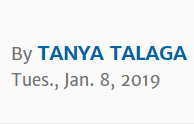
First let’s talk about basic Indigenous rights, then we’ll get to reconciliation
Tanya Talaga is an Anishinaabe Canadian journalist and author. She is an investigative reporter and also an Indigenous Issues Columnist for The Star, Canada’s largest daily. She recently presented the 2018 CBC Massey Lectures—All Our Relations: Finding the Path Forward.
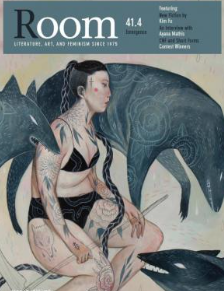
14 Indigenous writers to read this summer published in Room Magazine
“I was both honoured and delighted when Room asked me to compile a list of Aboriginal women authors as part of the 2015 celebration of National Aboriginal Day. While this list is by no means a comprehensive list of all the great Aboriginal women writers in Canada, it includes 14 writers whose work I have either come to know and respect or that are on my “to read” list. I have been blessed to have the opportunity to know many of these writers on a personal level.” ~ All my Relations ~ Jónína Kirton

Canada’s vanishing point:
Reconciliation and the erasure of Indian personhood
published in The Monitor CCPA’s national magazine
AUTHOR: Tara Williamson
PUBLICATION: MAY 1, 2017
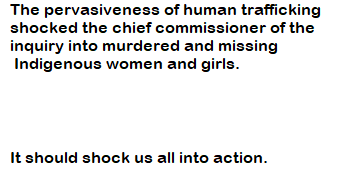
Human trafficking is pervasive and largely ignored in Canada
Author: Daphne Bramham
Updated: June 11, 2019
![]()
Audio
– Radio programs
– Podcasts
– and more.
- Listen to the 2018 Massey Lectures: All Our Relations: Finding the Path Forward with Tanya Talaga
- Unreserved with Rosanna Deerchild, read articles and listen to podcasts.
- Listen to the 2003 Massey Lectures: The Truth About Stories – Thomas King – Lecture 1
- Listen to the 2003 Massey Lectures: The Truth About Stories – Thomas King – Lecture 2
- Listen to the 2003 Massey Lectures: The Truth About Stories – Thomas King – Lecture 5
– Online programs
– Community programs
– and more.
 Reconciliation Through Indigenous Education, a 6 week MOOC (Massive Open Online Course) at UBC. Next offered April 1, 2019. Engage with Indigenous knowledge keepers, educational leaders, and resources to enhance your understanding and knowledge of practices that advance reconciliation in the places where you live, learn and work.
Reconciliation Through Indigenous Education, a 6 week MOOC (Massive Open Online Course) at UBC. Next offered April 1, 2019. Engage with Indigenous knowledge keepers, educational leaders, and resources to enhance your understanding and knowledge of practices that advance reconciliation in the places where you live, learn and work.– UNDRIP
– 2015 Report from the Truth and Reconciliation Commission of Canada
– and more.
- United Nations Declaration on the Rights of Indigenous Peoples (UNDRIP)
- 2015 Report from the Truth and Reconciliation Commission of Canada
- 2015 Report from the Truth and Reconciliation Commission of Canada Summary
- Truth and Reconciliation Commission of Canada: Calls to Action
- The Royal Proclamation of 1763 Summary
- The Indian Act
- The Indian Act Summary
- The White Paper
- The White Paper Summary
- The Constitution Act, 1982 Section 35 Summary
- Royal Commission on Aboriginal Peoples
- Royal Commission on Aboriginal Peoples Summary
- Kelowna Accord Summary
– Truth, Healing and Reconciliation – Reflection Guide (Introductory Booklet)
– Indigenous Peoples-A Guide to Terminology developed by a local organization that provides training on Working Effectively With Indigenous Peoples ® https://www.ictinc.ca/about-us






You must be logged in to post a comment.